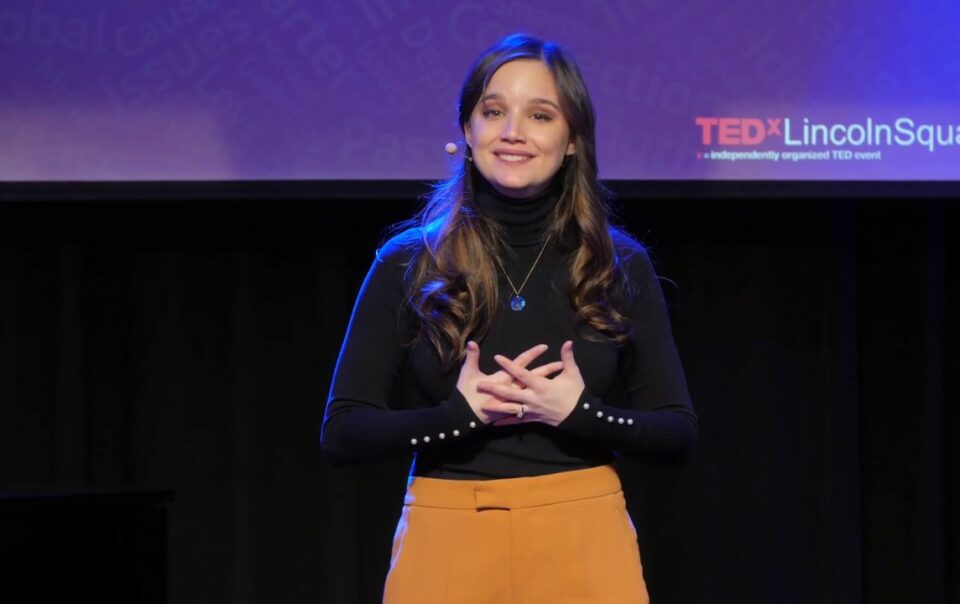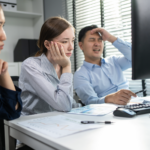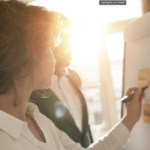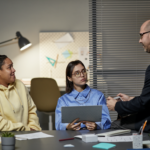
Climate change ปัญหาภาวะโลกร้อน ที่เกิดจากก๊าซเรือนกระจก ปัญหามลภาวะที่เกิดจากสภาพอากาศที่เปลี่ยนแปลงไปอย่างรวดเร็วมาก ส่งผลกระทบต่อสิ่งมีชีวิตมากมายในขณะนี้
เรื่องของปัญหาภาวะโลกร้อน หรือ เรื่องของการประหยัดพลังงานเพื่อช่วยโลก แม้จะไม่ได้เป็นวิชาหลักที่เราได้เรียนกัน แต่ตลอดการเรียนหนังสือกว่าครึ่งในชีวิตของวิชาต่างๆ ที่เราได้เรียน มักจะเจอเรื่องเหล่านี้สอดแทรกอยู่เสมอ ไม่ว่าจะเป็นในวิชาสังคมศึกษา วิทยาศาสตร์ หรือ ศิลปะ
ยกตัวอย่างกิจกรรมที่เกี่ยวกับ Climate change เช่น เราจะต้องผ่านการวาดรูปรณรงค์เกี่ยวกับการลดผลกระทบจากภาวะโลกร้อน หรือ ออกแบบโปสเตอร์เพื่อนำเสนอในเรื่องการประหยัดพลังงาน หรือ การทำรายงานส่งเกี่ยวกับการช่วยโลกมา หรือ อื่นๆ แล้วส่ิงที่เราเรียนรู้ และกิจกรรมที่เราได้ทำกันมามากมาย แล้ววันนั้น มันมีอะไรเปลี่ยนแปลงไปบ้างล่ะ?
“มนุษย์เป็นสัตว์ประเภทหนึ่งบนโลกใบนี้ ที่สามารถสร้างการเปลี่ยนแปลงสภาพภูมิอากาศบนโลกได้”
เราทุกคนคงรู้อยู่แล้วว่า บนโลกที่เราอาศัยอยู่นี้ประกอบไปด้วยสิ่งมีชีวิตมากมาย สัตว์น้อยใหญ่ทั้งที่ถูกค้นพบแล้ว และยังไม่ถูกค้นพบ ซึ่งมนุษย์เองก็เป็นหนึ่งในสัตว์เหล่านั้น แต่ความมหัศจรรย์คือมนุษย์สามารถทำให้โลกเกิดความเปลี่ยนแปลงได้ แต่ความสามารถของมนุษย์นั้นถูกนำไปใช้ในทางที่ผิด การเปลี่ยนแปลงที่ได้จึงไม่ใช่การเกิดประโยชน์แต่เป็นโทษเสียแทน
“ถ้าเรารู้ว่าการเผาไหม้เชื้อเพลิงฟอสซิลมันเป็นเรื่องแย่ แต่ทำไมเรายังทำอยู่ล่ะ?”
ในการบรรยาย TEDxStockholm เด็กสาวนักขับเคลื่อนเรื่องการเปลี่ยนแปลงสภาพภูมิอากาศวัย 16 ปีอย่าง Greta Thunberg ได้เข้าร่วมการบรรยายในครั้งนั้น เธอเล่าให้ฟังว่าตอนเธออายุ 8 ขวบ เธอมักจะได้เรียนรู้เกี่ยวกับ Climate change หรือ สภาพภูมิอากาศที่เปลี่ยนแปลงไปเพราะมนุษย์เสมอ ทุกคนก็รู้ว่าอะไรคือสิ่งที่คุกคามการดำรงชีวิตของมนุษย์ แต่ทำไม ทุกคนยังทำเหมือนเดิม ทำต่อไปเรื่อยๆ โดยไม่มีการควบคุม หรือ ไม่มีกฎหมายมากำหนด หรือ ลงโทษ
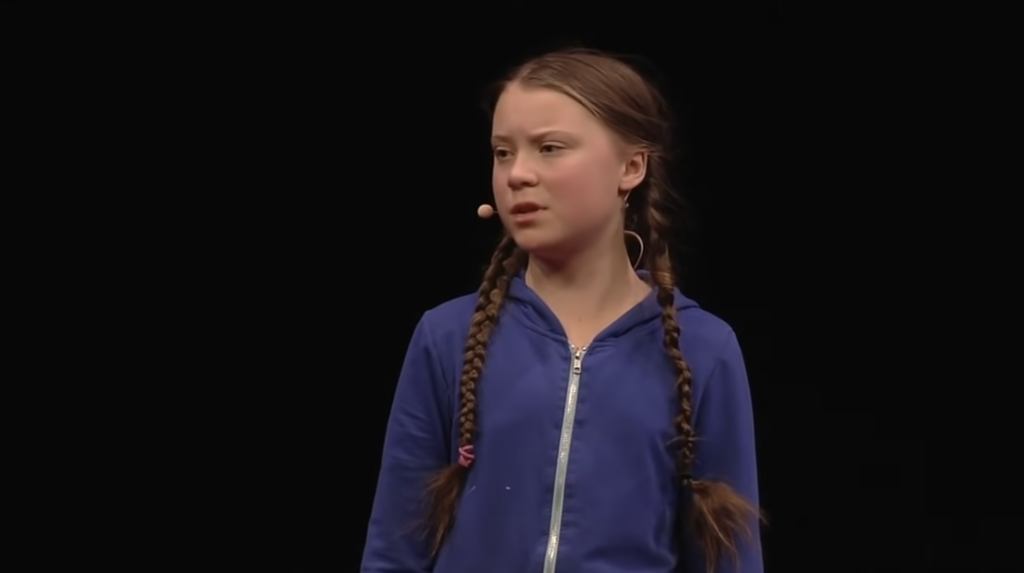
“ฉันพูดในตอนที่จำเป็นเท่านั้น และฉันคิดว่าตอนนี้แหละ ที่จำเป็นที่สุด”
Greta ในตอนที่เธอมีอายุ 11 ปี เธอพบว่าตัวเองป่วยเป็นโรคซึมเศร้า ทำให้เธอหยุดพูด หยุดกิน น้ำหนักเธอหายไปกว่า 10 กิโลกรัมภายในเวลาแค่ 2 เดือน แต่เรื่องไม่ได้จบแค่นั้นเมื่อเธอพบว่าตัวเองยังเป็นโรคแอสเพอร์เกอร์ซินโดรม โรคย้ำคิดย้ำทำ (OCD – Obsessive Compulsive Disorder) และ ภาวะไม่พูดในบางสถานการณ์ ซึ่งจะรู้กันดีว่าคนที่ป่วยเป็นโรคนี้จะเงียบ และพูดน้อยมาก แต่สำหรับเธอแล้ว สถานการณ์ตอนนี้ จำเป็นที่สุดที่ต้องออกมาพูด เพราะเหล่าคนที่พูดได้ดีกลับไม่มีใครพูดเรื่องนี้แบบจริงจังกันเลยสักคน
“เรื่อง Climate change มันไม่มีอะไรยากเลย ไม่มีอะไรคลุมเครือ ทุกอย่างตรงไปตรงมา มีแต่คนที่ทำให้มันคลุมเครือ”
การที่ Greta เป็นโรคเหล่านี้ ทำให้เธอกลายเป็นคนพูดอย่างตรงไปตรงมา เรื่องของการโกหกจึงเป็นเรื่องยากสำหรับเธอ และมันก็ยากพอๆ กับการเข้าสังคม อย่างที่คนอื่นเขาชอบทำกัน สำหรับเธอแล้ว บางครั้งการเป็นออทิสติกก็ดูปกติกว่าคนทั่วไปเสียอีก เธอกล้าพูดอย่างตรงไปตรงมาในเรื่องวิกฤตการเปลี่ยนแปลงสภาพภูมิอากาศของโลกที่กำลังเผชิญหน้ากันอยู่ เพราะทุกอย่างเห็นได้อย่างชัดเจน ต่อให้ไม่ตั้งใจจะมองก็เห็นว่าปัญหาคืออะไร จะหยุดได้อย่างไร แก้ตรงไหน? แต่เรากลับไปทำให้มันดูคลุมเครือ ดูเป็นเรื่องยาก เอาไปโยงไปทางนู้นทางนี้ ทำให้เกิดความสับสน
“เราจะสร้างความเจริญต่อไป หรือเราจะหยุดเพื่อเปลี่ยน”
คำถามมันง่ายๆ แค่นี้เลย เป็นคำถามอย่างตรงไปตรงมา เราต้องเริ่มคิดก่อนว่าเราจะหยุดเพื่อสร้างความเปลี่ยนแปลงให้แก่โลก หรือ เราจะยังมุ่งเน้นหาความเจริญต่อไปเหมือนที่เราทำกันอยู่ทุกวันนี้
ตัวอย่างเช่น ประเทศที่ร่ำรวยอย่างสวีเดนต้องลดการปล่อยมลพิษ 15% ทุกปีเพื่อทำให้อุณหภูมิของโลกเพิ่มขึ้นไม่ถึง 2 องศาเซลเซียสต่อปี ทั้งที่คณะกรรมการ IPCC (Intergovernmental Panel on Climate Change) เปิดเผยว่า การตั้งเป้าที่ 1.5 องศาเซลเซียสช่วยโลกได้มากกว่า
“การลดมลพิษเป็นคำตอบที่ตรงไปตรงมา แต่เป็นคำตอบที่เราไม่ยอมพูดถึง”
การตั้งเป้าอุณหภูมิของโลกไม่ให้เพิ่มเกิน 1.5 องศาเซลเซียส จะช่วยโลกได้มากกว่าจริงๆ และในทางปฏิบัติ ถ้าให้พูดอย่างตรงไปตรงมา ก็คือเราก็แค่ช่วยกันลดการปล่อยมลพิษสู่ชั้นบรรยากาศ มันคือทางแก้ และมันก็คือคำตอบของการช่วยโลก เราคงคิดว่านายกรัฐในตรี หรือ ประธานาธิบดี หรือสำนักข่าวต่างๆ ต้องรายงานเกี่ยวกับสิ่งเหล่านี้ เพราะมันสำคัญมากจริงๆ มันคือความเป็นไปของโลก มันคือการดำรงเผ่าพันธุ์สิ่งมีชีวิตทุกสิ่งบนโลก แต่ความเป็นจริงก็คือทุกอย่างเงียบไปหมด
“แทบไม่มีใครพูดถึงสถานการณ์ปัจจุบันเลยว่า ตอนนี้มันเลวร้ายแค่ไหน”
ไม่มีใครพูดเลยว่าตอนนี้ก๊าซเรือนกระจกได้เกิดขึ้นมาบนโลกแล้ว ไม่มีข่าวช่องไหนรายงานเลยว่าแม้เราจะลดการเผาไหม้เชื้อเพลิงแล้ว อุณหภูมิของโลกก็ยังเพิ่มขึ้นอย่างต่อเนื่องราวๆ 0.5-1.1 องศาเซลเซียสแล้ว ไม่มีหนังสือพิมพ์ไหนตีพิมพ์เลยว่าเรากำลังเข้าสู่ยุคการสูญพันธุ์ครั้งที่ 6 สิ่งมีชีวิตเกือบ 200 ชนิดกำลังสูญพันธุ์ไปในทุกวัน อัตราการสูญพันธุ์ทุกวันนี้เพิ่มขึ้น 1,000-10,000 เท่า เมื่อเทียบกับอัตราการสูญพันธุ์ปกติ
ประเทศที่ร่ำรวยต้องหยุดการปล่อยมลพิษให้ได้ภายใน 6-12 ปีนี้ เพื่อให้ประเทศที่ยากจนมีสิทธิ์เข้าถึงความเจริญ ให้พวกเขาสามารถยกระดับคุณภาพชีวิตของตัวเองขึ้นมาได้ เราไม่ควรคาดหวังให้ ประเทศอย่างอินเดียหรือไนจีเรีย สนใจเรื่องการเปลี่ยนแปลงสภาพภูมิอากาศ ถ้าแม้แต่เราที่มีทุกอย่างพร้อม ยังเลือกที่จะนิ่งเฉย ไม่สนใจเรื่องพวกนี้ ทั้งที่เราสามารถทำได้โดยไม่ได้ลำบากเลยสักนิด
“เราคิดว่าเรารู้ ทุกคนรู้ แต่ความเป็นจริงคือไม่ ไม่มีใครรู้”
ทุกคนที่ได้เรียนรู้สิ่งเหล่านี้ มักคิดว่าเรารู้อยู่แล้วว่าเกิดภาวะโลกร้อน คนอื่นก็รู้เหมือนกัน เหมือนที่เราชอบพูดกันว่าโลกร้อน โลกจะแตก ใครๆ ก็พูดกัน แต่ความจริงแล้ว คือไม่เลย พวกเขาไม่รู้ คุณเองก็อาจจะไม่รู้ว่าตอนนี้มันเลวร้ายขนาดไหน? เราบอกกันว่าถ้าลดการปล่อยมลพิษจะช่วยโลกได้ แต่ทางปฏิบัติการปล่อยมลพิษมีอัตราเพิ่มสูงขึ้นทุกปี เรากำลังก้าวเข้าสู่การสูญพันธุ์ เราทุกคนมีส่วนในการทำลายครั้งนี้ และเรายังคงไม่หยุด เรายังทำทุกอย่างต่อไปเหมือนเดิม
“ไม่มีใครพูด ไม่มีการเรียกประชุมด่วน ไม่มีการพาดหัวข่าว ไม่มีการตัดเข้าข่าวด่วน”
หลายคนอาจจะคิดว่าถ้ามันวิกฤตจริงๆ เราน่าจะได้เห็นสัญญาณอะไรบ้างใช่ไหม? ไม่ใช่แค่น้ำท่วมคนตายเป็นหมื่น แผ่นดินทรุด ตึกถล่มทับคนล้มตาย อากาศร้อนจนฆ่าคนได้ หรือน้ำแข็งขั้วโลกละลาย คุณอาจจะคิดว่าสัญญาณพวกนี้มันไม่พอใช่ไหม? เพราะมันไม่ใช่ข่าวที่ได้รับความสนใจเหมือนกับข่าวซุบซิบดารา เราไม่ได้เห็นการควบคุมหรือการพูดถึงที่เหมาะสมเกี่ยวกับสัญญาณที่โลกพยายามส่งถึงเรา ทำให้เราคิดว่ามันเป็นเพียงภัยพิบัติที่เกิดจากการเปลี่ยนแปลงของโลกเท่านั้น แต่ความจริงมันเกิดจากพวกเราทุกคน
“ถ้าหากฉันโชคดีได้อยู่ถึงตอนมีลูกหลาน พวกเขาคงถามว่าทำไมพวกคุณถึงไม่ทำอะไรกันเลย?”
ในตอนที่เราเริ่มคิดถึงอนาคต เราไม่สามารถคิดถึงเราตอนอายุ 100 ปีได้ เพราะเราอาจจะคิดไปไกลถึงขนาดนั้นไม่ได้ Greta เล่าว่าเธอคิดถึงเธอตอนอายุ 50 ปี ที่มีลูก มีหลาน ลูกหลานของเธอคงถามเธอว่า ทำไมคนถึงไม่เริ่มทำอะไรตั้งแต่ตอนที่ทำได้? เพราะในอีก 50 ปีข้างหน้า มันอาจจะสายเกินแก้แล้ว ลูกหลานของเธอก็คงแก้ไขหรือเปลี่ยนแปลงอะไรแก่โลกใบนี้ไม่ทันแล้ว ดังนั้นทุกอย่างที่เราเลือกที่จะไม่ทำในวันนี้ มันจะส่งผลกระทบต่อลูกหลานของเราในอนาคตทั้งสิ้น และพวกเขาต้องตั้งคำถาม และกล่าวโทษถึงบรรพบุรุษของพวกเขาอย่างแน่นอน
“ทำไมฉันต้องเรียนเพื่ออนาคตที่ไม่มีวันมาถึง?”
Greta เล่าว่า เมื่อการเปิดเทอมในเดือนสิงหาคม ในปี 2019 มาถึง เธอเลือกที่จะไม่ไปโรงเรียน และไปประท้วงหน้ารัฐสภาสวีเดนแทน ผู้ใหญ่หลายคนบอกให้เอาเวลาไปเรียนดีกว่า หรือ ถ้าสนใจเรื่องภูมิอากาศมากนัก ก็ไปตั้งใจเรียนแล้วมาเป็นนักภูมิศาสตร์สิ แต่ทำไมยังต้องเรียนหรือศึกษาในเรื่องพวกนี้ ในเมื่อเรามีคำตอบอยู่แล้ว มีผลการศึกษาอยู่แล้ว เรามีการค้นคว้าที่ได้ผลลัพธ์แล้ว เราเห็นทางออกของปัญหานี้กันอยู่แล้ว แต่เราไม่มีคนทำต่างหาก ไม่มีใครทำตามคำตอบที่ได้รับ แล้วเราจะศึกษาไปทำไม?
“ความรู้ทางวิทยาศาสตร์ในห้องเรียน อาจจะไม่ได้มีความหมายอะไรกับสังคมเลย”
ผลการศึกษาทางวิทยาศาสตร์และทางออกทั้งหมดที่วิทยาศาสตร์ มอบให้สังคมและนักการเมือง มันไม่ได้มีค่าอะไรเลย บางคนบอกว่าสวีเดนเป็นประเทศเล็กๆ ที่ไม่สามารถสร้างการเปลี่ยนแปลงได้ขนาดนั้น แต่ถ้าเหล่าประเทศเล็กๆทั้งหมดคิดแบบนี้ หมายความว่า เราสูญเสียการร่วมมือจากคนจำนวนมากที่อาจจะมากกว่าประเทศใหญ่ๆ ที่เราคาดหวังให้พวกเขาทำซะด้วยซ้ำ
“มนุษย์เป็นสิ่งมีชีวิตที่ต้องการความหวัง”
ที่ผ่านมาคนเราให้ความหวังกันเองด้วยการบอกว่ามันไม่ได้แย่ขนาดนั้นหรอก เรามีพลังงานจากลม เรามีโซลาร์เซลล์ เรามีหลักเศรษฐกิจหมุนเวียน มันคือความหวังที่เราให้กัน เพราะถ้าสิ่งที่เราทำอยู่มันช่วยได้จริง ทำไมอุณหภูมิของโลกยังคงเพิ่มขึ้นสูงอยู่ทุกปี? ทำไมเราถึงยังหยุดการปล่อยมลพิษไม่ได้? ทั้งๆ ที่มีทางเลือกมากมายให้เราเลือกทำมากขนาดนี้
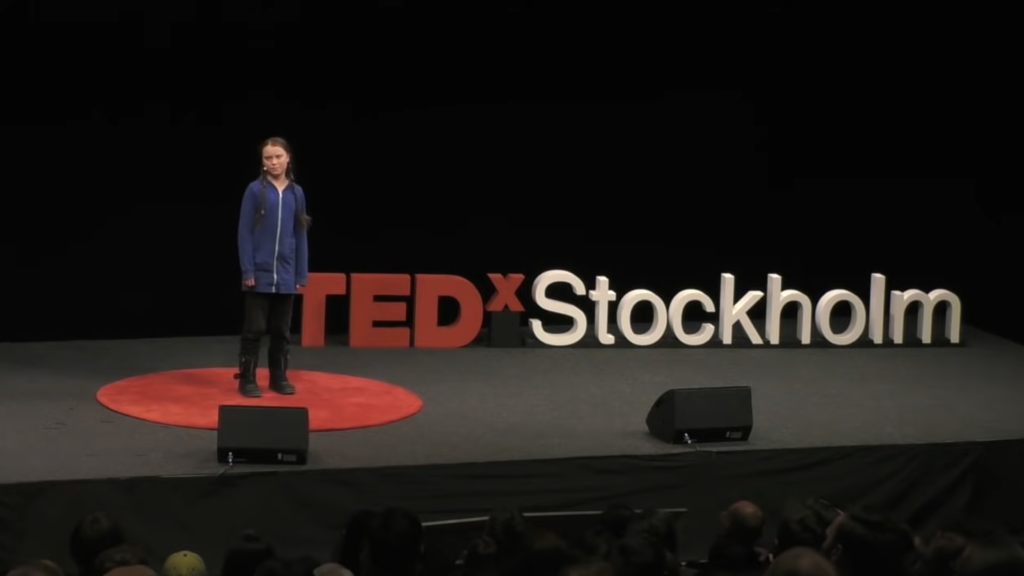
“สิ่งที่เราต้องการมากกว่าความหวัง คือ การลงมือทำ เพราะเมื่อเราลงมือทำแล้ว ความหวังก็จะเกิดขึ้น”
เราต้องเลิกยึดกับการให้ความหวังกันและกัน การปลอบใจกันไม่ใช่สิ่งที่จำเป็นในตอนนี้ เราจำเป็นต้องหันหน้าเข้าหากัน เอาความจริง สถานการณ์จริง และผลกระทบจริงๆที่เกิดขึ้นกับโลกของเรามาพูดกัน เมื่อเราเริ่มลงมือทำ มันจะเป็นการให้ความหวังกันเองโดยไม่ต้องมานั่งพูดปลอบใจกันในทางทฤษฎีเหมือนอย่างเคย ต่อจากนี้การปฏิบัติ ควรเป็นสิ่งที่ทำเพื่อให้เกิดความหวังขึ้นมาแทน
บทสรุป
เราคงจะปฏิเสธไม่ได้เลยว่า อย่างน้อยครั้งหนึ่งเราก็ต้องเคยได้ยินเกี่ยวกับเรื่องภาวะโลกร้อนมาก่อน แต่เราเองก็อาจจะยังรู้สึกว่ามันห่างไกล หรือ ถ้าเรารู้สึกว่ามันใกล้ตัวแล้ว เราก็ไม่รู้ที่จะเริ่มมันจากตรงไหน?
อาจจะด้วยข้อจำกัดในการใช้ชีวิตต่างๆ ไม่ว่าจะเป็นในเรื่องการทำงาน การเดินทาง การอยู่ การกิน แค่เรื่องเหล่านี้ที่เกิดขึ้นในแต่ละวัน ก็เป็นเรื่องที่เหนื่อยจนเกินจะรับไหวอยู่แล้ว แต่ทุกสิ่งที่อยู่ในลิสต์สิ่งที่ต้องทำในชีวิตของเรามันสามารถปรับเปลี่ยนได้ ถึงแม้จะทำเพียงนิดเดียว แต่มันก็คือความหวังของโลกใบนี้
เรื่องพวกนี้มันเป็นเรื่องที่ตรงไปตรงมามากเลย เราไม่ควรยัดเยียดความคลุมเครือให้กับเรื่องที่เราเห็นทางออกอยู่ตรงหน้าอยู่แล้ว อย่าให้ภาวะโลกร้อนเป็นเพียงแค่แผ่นพับ หรือโปสเตอร์ หรือ การถือป้ายกระดาษรณรงค์เฉยๆ เรื่องนี้มันต้องไม่ใช่แค่การเรียนรู้ในห้องเรียน มันเป็นเรื่องสำคัญที่ต้องการให้ทุกคนมาตระหนักถึง และร่วมมือกันด้วยการลงมือทำ นี่ต่างหาก คือ ความหวัง ที่แท้จริง
“แทนที่เราจะเฝ้ารอความหวัง เราลงมือสร้างมันเองเลยจะดีกว่า ทุกอย่างต้องเปลี่ยนแปลง และมันต้องเริ่มต้นเดี๋ยวนี้”
The disarming case to act right now on climate change | Greta Thunberg


